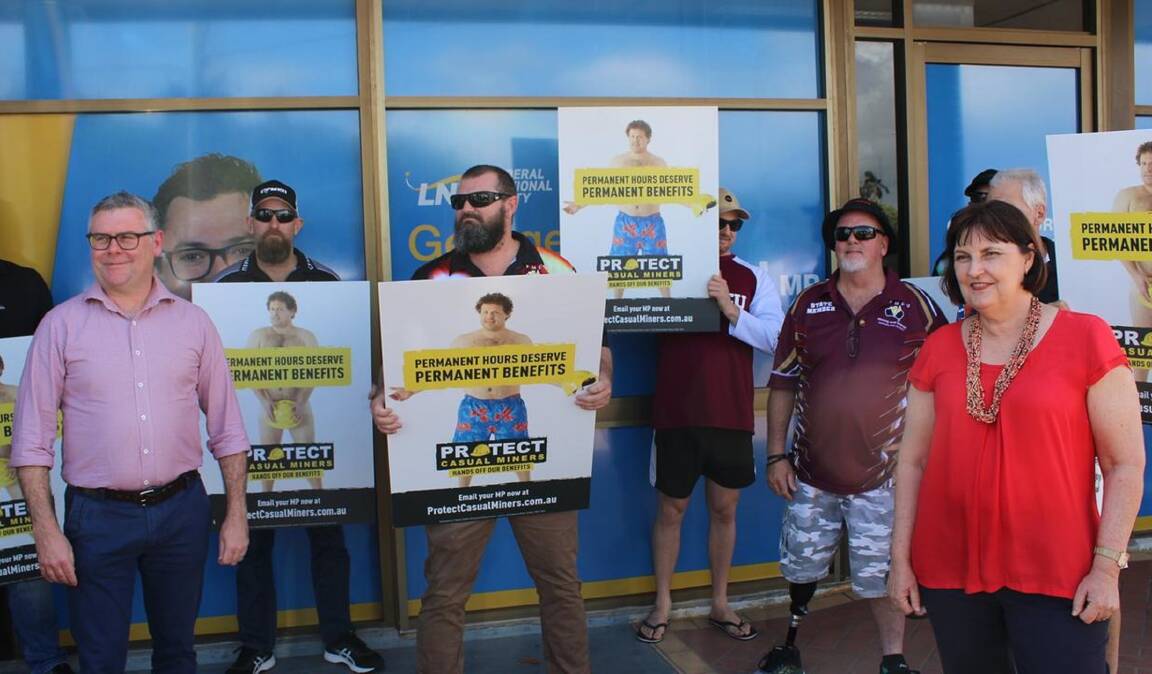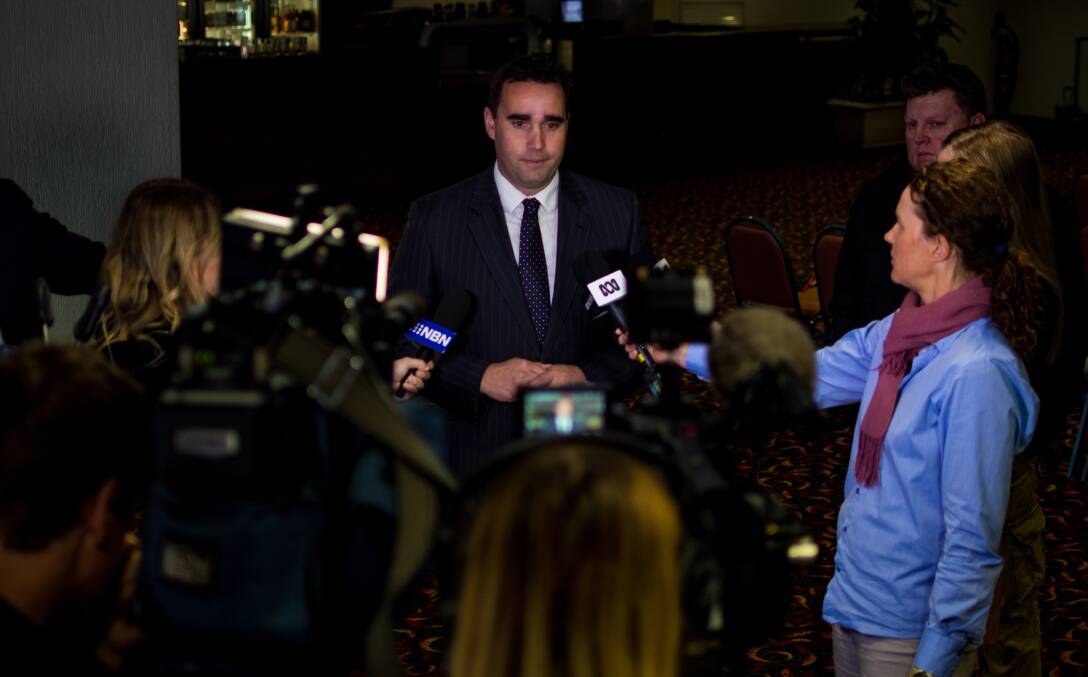
A FOUR-YEAR campaign to win hundreds of millions of dollars in compensation from coal companies over their use of "permanent casual" labour-hire workers has come to an end with two key cases being formally discontinued in the Federal Court.
The outcome is not unexpected after One Nation voted with the Coalition on March 26 last year to allow a retrospective change to the definition of "casual employee" in the Fair Work Act, followed by a High Court ruling on August 4 that found in favour of labour-hire firm WorkPac in the long-running Rossato case.
The end of the coal class actions has been welcomed by coal companies and the Australian Industry Group (AIG), which yesterday described the discontinuance orders as "hopefully a final step in the long saga of the unfair double-dipping claims" - a reference to concerns the class actions would lead to a "double dipping" by employees claiming "permanent" entitlements such as annual leave and sick leave plus a 25 per cent "casual" loading.
But late yesterday the Newcastle Herald confirmed that at least two other class actions - against Woolworths and Coles - were still continuing, with Federal Court orders last month - just days before the coal discontinuance orders - indicating the cases are proceeding to trial next year.
Two years ago, the Australian Industry Group (AIG) claimed the Rossato case could cost employers across the country between $18 billion and $39 billion if it was allowed to stand.
Those pursuing the claims made public pay slips showing casuals in the coal industry earning as little as $92,000 for the same work on the same rosters that permanents were paid $150,000 or more.
They said that if billions of dollars were owed across the board, it was because that was how much employers were underpaying people.
The Mining and Energy Union is vowing to fight on against the lower rates of pay earned by "permanent casuals" in the coal industry through its "same job same pay" campaign in conjunction with the ALP, which is campaigning on the theme in the run-up to the May 21 federal election.
Former Mount Arthur permanent casual Simon Turner, who was the lead claimant in a major class action run by Canberra law firm Adero, said he had signed a deed and was unable to comment on the case.
Another Hunter region mineworker, Sam Stephens, appears as an "objector" in the April 29 decision by Justice Bernard Murphy - Turner v Ready Workforce (A division of Chandler Macleod) Pty Ltd [2022] FCA 467 - which spelt the end of the Adero case.
Justice Murphy wrote that he was "satisfied that it is appropriate to approve the discontinuance of the proceeding" although he noted that Mr Stephens objected through a notice of objection lodged in January and an affidavit sworn on April 7.
Justice Murphy's judgement in the union case - Peterson v Workpac Pty Ltd [2022] FAC 476 - was handed down last Monday.
Despite the discontinuations, Justice Murphy's orders in both cases state they do "not affect any rights of the applicant or any group member in the proceeding to pursue the claims that are the subject of this proceeding in another proceeding, subject to any applicable limitation period".
The general president of the Mining and Energy Union, Tony Maher, said yesterday that the union's class action had ended - after all members were consulted - because there was "no reasonable prospect of success" after the Fair Work amendments and the High Court decision.
"Casual mineworkers' hopes for justice through these class actions were dashed a year ago when the Morrison Government passed laws rubber-stamping the 'permanent casual' work model," Mr Maher said.

"The subsequent Rossato High Court decision was a final nail in the coffin. However the outcome was expected due to the new, retrospective laws saying you're a casual if your contract says you are.
"The Morrison Government has legislated to take tens of thousands in entitlements off casual miners and into the pockets of big mining and labour hire companies.
"It's a disgraceful outcome. We need better laws to address the continuing labour hire rip-off in the mining industry."
AIG chief executive Innes Willox said yesterday that the discontinuations were "hopefully a final step in the long saga of the unfair double-dipping claims" pursued over the past five years creating "a lot of unnecessary uncertainty and risks".
"Litigation funders saw a commercial opportunity in pursuing arguments that thousands of employees who were engaged and paid as casuals were not genuine casuals, despite the fact that they received a 25 per cent casual loading," Mr Willox said.
"The High Court decisively ruled on the meaning of casual employment in WorkPac v Rossato, and this common law meaning aligns closely with the definition inserted into the Fair Work Act last year.
"It is time for everyone to move on. The casual employment issues have been comprehensively addressed by the High Court and by the Australian parliament.
"The outcome delivers fairness and certainty for everyone."
Herald reporting on unrest over casual employment at Mount Arthur began in earnest in 2015, with articles that exposed the substantial difference in earnings between coal miners employed directly by BHP and those employed by a succession of labour hire firms doing the same work on the same shift.
Simon Turner and others who spoke to the Herald complained that the Mining and Energy Union had not done enough to help them, and alleged that the union was part of the problem.
They complained about the role of a union-backed labour hire firm United Mining Support Services or UMSS in the development of "permanent casual" work in the Hunter industry, as well as union officials negotiating enterprise agreements allowing "casual" employment despite it being restricted to staff in the award.
Adero principal Rory Markham said yesterday that he knew Mr Turner was upset at the outcome of the class action he was the lead claimant for.
"Literally every course we could take was explored and put to the court," Mr Markham said.
He said the March 2021 law change was "the tragedy in these matters" as it made "sham casuals" a "lawful means of engagement" and deeply eroded any compensation the class actions could extract.
He confirmed that litigation funders withdrew support in September for two coal class actions Adero had been running but he said Adero continued three other actions on a "no win, no fee" basis without litigation funding.
Mr Markham did not respond to subsequent texts about the Woolworths and Coles class actions still before the courts, or other non-coal cases being run by Adero.








